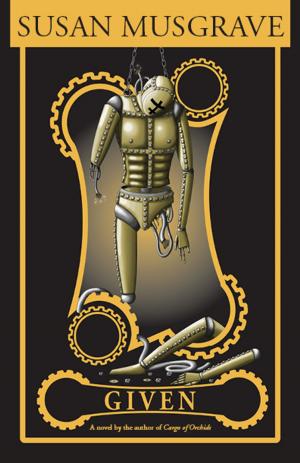| Author: | Britt Holmström | ISBN: | 9781927068168 |
| Publisher: | Thistledown Press | Publication: | March 15, 2012 |
| Imprint: | Thistledown Press | Language: | English |
| Author: | Britt Holmström |
| ISBN: | 9781927068168 |
| Publisher: | Thistledown Press |
| Publication: | March 15, 2012 |
| Imprint: | Thistledown Press |
| Language: | English |
The intimate portraits in Britt Holmström’s first collection of short fiction at times have a strong journalistic sense while at other times evoke the intimacy of a diary. The stories employ underlying humour — particularly irony, incongruity, paradox, and derision. They move fluidly through time operating in the present tense while creating tangents to the past. For example, in the title story “Leaving Berlin” an emotionally mismatched couple travel to Europe where they find themselves at odds with each other. They realize that other events are also conspiring against them when they are held for importing propaganda upon entering East Berlin. The narrator in “The Soul Of A Poet” rediscovers a notebook from her university days that details the events of a meteoric friendship she had with an alter-ego figure. Her notebook details her friends sudden descent into madness, and her own obsession with Eleanor’s life that remains years later. “The Blue Album” relates the incident of a freshly divorced woman whose new roommate’s ex-con brother comes to stay for the weekend leaving her with alternate states of paranoia and a tender interest that she can’t quite understand. In the story “Doing Laundry on a Sunday”, two women who always do laundry together on Sundays realize that they have no other knowledge of each other’s lives except their laundry sessions. Although not an explicit rubric, feminism underlies some of the stories, and Holmström’s development of women’s voices and viewpoints as a dominate force in her storytelling contribute significant texture to her writing.
The intimate portraits in Britt Holmström’s first collection of short fiction at times have a strong journalistic sense while at other times evoke the intimacy of a diary. The stories employ underlying humour — particularly irony, incongruity, paradox, and derision. They move fluidly through time operating in the present tense while creating tangents to the past. For example, in the title story “Leaving Berlin” an emotionally mismatched couple travel to Europe where they find themselves at odds with each other. They realize that other events are also conspiring against them when they are held for importing propaganda upon entering East Berlin. The narrator in “The Soul Of A Poet” rediscovers a notebook from her university days that details the events of a meteoric friendship she had with an alter-ego figure. Her notebook details her friends sudden descent into madness, and her own obsession with Eleanor’s life that remains years later. “The Blue Album” relates the incident of a freshly divorced woman whose new roommate’s ex-con brother comes to stay for the weekend leaving her with alternate states of paranoia and a tender interest that she can’t quite understand. In the story “Doing Laundry on a Sunday”, two women who always do laundry together on Sundays realize that they have no other knowledge of each other’s lives except their laundry sessions. Although not an explicit rubric, feminism underlies some of the stories, and Holmström’s development of women’s voices and viewpoints as a dominate force in her storytelling contribute significant texture to her writing.















